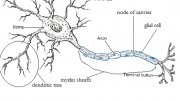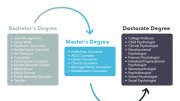
The Clinical Program's philosophy is best described as a student-centered scientist-practitioner model. The core values expressed by the clinical program at the University of North Texas are threefold: (a) respect for the individual, (b) commitment to excellence, and (c) genuine integration of science and practice. Our commitment to excellence requires that high standards of research and clinical practice be maintained. We have been continuously accredited by the American Psychological Association since 1978. Following our most recent review in 2013, we were re-accredited for a full 7 years (the maximum possible), with our next site visit planned for 2020.
Although not bound to a formal mentorship model, we believe that a mentorship climate is highly conducive to close faculty-student collaboration and effective modeling of the scientist-practitioner paradigm. Nearly 30% of our current students are ethnic/racial minorities and our student body is characterized by diversity, broadly defined. The training environment is maximally supportive, yet fosters independence, and we are proud that 96% of our recent graduates who took the national professional licensure exam passed.
As just one example of how the program simultaneously expresses our core values, its contributions to psychological assessment were reviewed in Leading North American Programs in Clinical Assessment Research: An Assessment of Productivity and Impact (2010). Of the 234 accredited programs by the American Psychological Association, the UNT Clinical program was highly ranked on its publications and impact:
- Ranked 14th nationally (top 6%) on its number of publications in the most influential assessment journals.
- Ranked 6th nationally (top 3%) on its impact as measured by its citations (443 citations in the leading assessment journals for the last decade). A second index for measuring impact, the h-Index, places the UNT Clinical program 5th nationally.
Our research courses and research teams emphasize the clinical relevance of scientific inquiry. By the same token, clinical courses and practica are grounded in theory and informed by empirical research. Incorporating needs for research excellence with individual choice, we expect clinical students to involve themselves with one of the department's research advisors immediately upon entry and actively participate in research of interest. In addition to excellent broad and general training in clinical psychology, we offer two elective areas of focus: forensic psychology and clinical neuropsychology.
Source: psychology.unt.edu
You might also like:



















Stony Brook University, State University of New York Graduate School College of Arts and Sciences Department of Psychology.ChaCha!
You do have a chance, but you will really need to do well on the GRE. Your overall GPA is not too bad at all and the admission committee cares more about the last two years than the first two years. The fact that your Major GPA is a 4.0 works to your advantage. Now you just need to shoot for at bare minimum, an 1100 on your GRE.